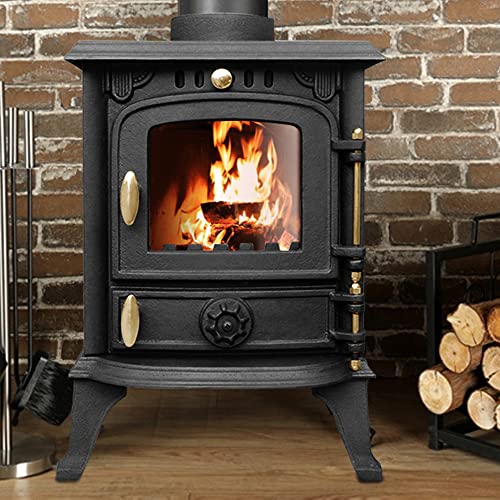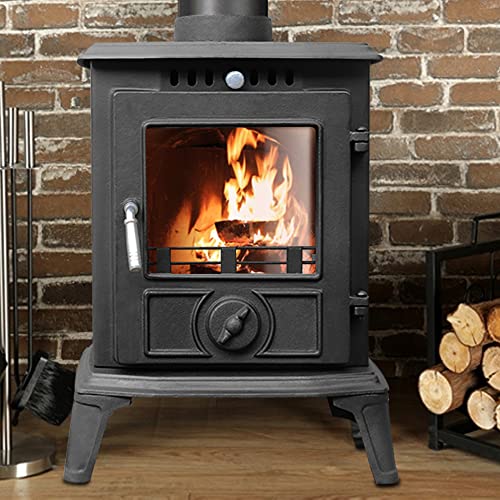Choosing a Defra Exempt Wood Burner

Smoke Control Areas are the most commonly used classification for UK towns and cities. If you reside in a Smoke Control Area and are looking to install a stove, you will require a
defra stoves approved stove. You can recognize them by their Defra approved logo.
The stoves that are exempt from Defra regulations are designed to prevent the flame from burning, which reduces the amount of smoke generated. They also make use of fuel more efficiently.
What is an Defra Exempt Stove?
A Defra Exempt stove is a wood burning domestic heating appliance that has passed the tests laid out by the Department for Environment, Food and Rural Affairs. The Defra Exempt label is applied to stoves that have been tested independently and meet the strict criteria for emissions. Exempt stoves from Defra are able to be used in Smoke Control Areas.
If you reside in a smoke-control area, it is essential to have a DEFRA approved stove, as you are not legally allowed to burn wood (unless you are authorised to burn fuel) without one. If you install a non-DEFRA-approved stove in a smoke control zone, you'll be in violation of the Clean Air Act and could be charged.
From the outside,
Defra certified stoves there is very little difference between the Defra approved stove and one that hasn't been given this status. However, there are a few things that stove makers use to make their appliances DEFRA exempt. The most obvious distinction is that the burners on the DEFRA approved stove are made not to starve the fire of oxygen as this can cause it to smolder and release excessive amounts of smoke.
To prevent this manufacturers will adjust the air vent at the top of a stove that is Defra approved. This will stop you from being able shut the vent completely down because it would cut off the air supply to the fire. The adjustment is usually an incredibly small screw located on the
top DEFRA stoves front of the stove, below the stove's base or on the back of the stove.
Stoves that are Defra Exempt can also be multifuel stoves and can therefore be used to burn different types of fuels alongside wood. This is a great option for those who you live in an area that is designated as a Smoke Control Zone and you don't want to be restricted to only using approved fuels. Some stoves that are Defra Exempt will also be able to be equipped with five" chimney liner when burning wood (if the manufacturer doesn't insist on the use of a larger size). This is great news for those who want to install wood burning stoves but are worried about local regulations regarding smoke.
What are the benefits of a stove that is Defra certified?
Defra-approved stoves have many advantages, including the ability to meet local regulations as well as provide warm and cozy fire. For instance, they are likely to be more efficient than non-
Defra certified stoves and therefore reduce the amount of carbon that is produced when they are used. This can result in significant savings on your heating bills. Defra-approved stoves are also easier to use and have more simple controls than non-approved ones.
There are many factors to take into consideration when purchasing a wood-burning stove or multi-fuel stove. This includes your heating requirements and aesthetic preferences and long-term goals. When choosing a stove it is crucial to take into consideration these factors. A defra-exempt stove is ideal for those who live in smoke-controlled areas. They are eco-friendly and have been thoroughly tested.
Aside from being environmentally friendly, Defra approved stoves are also designed to provide superior combustion and flame spread. This ensures that the fuel burns evenly, resulting in an even and pleasant flame. Additionally they are more durable than non-Defra-approved stoves, meaning that they last longer and can endure higher temperatures.
Most Defra-approved stoves are compatible with a 5 inch chimney liner, which is ideal for homes in areas with smoke control. It is important to remember that if you intend to use your stove with damp wood or other damp fuels the stove will still emit toxic fumes that could result in a prosecution from the local authority.
To get Defra approval stove manufacturers have to modify their appliances to restrict the amount of air that could be lost during the burning process. The air control on the top is typically modified to stop the complete closure. Closing the air supply to a stove for too long could cause it to smolder instead of burning properly and, in turn, result in a nuisance smoke.
What is the difference between a Defra-approved stove and a non-Defra approved stove?
A stove that has been approved by the defra can let you burn wood legally in a Smoke Control Area. However, a nondefra-exempt stove will not. Stoves that have been approved by Defra have passed tests that show they can burn wood safely and efficiently in smoke-controlled areas, without producing excessive amounts of smoke. If you reside in a region which is smoke-free you can make use of your new stove without the risk of fines.
A Defra approved stove is also more efficient than other types of wood-burning stoves, which means it will generate more heat and release less harmful emissions into the air. This makes them a great choice for homeowners who want to save money on heating costs and are concerned about the environment.
Stoves that are Defra approved are usually advertised with the Defra Approved logo that is easily identifiable and has been adopted by the stove industry. You can also find out if the stove is Defra exempt by looking at the specifications or looking on the website of the manufacturer for more information on the stove.
When you are choosing a Defra approved stove, it is essential to think about the style you prefer since there are a myriad of choices available. Some of these are more traditional in design and look stunning in an old fireplace or inglenook, while others are more contemporary and will be ideal for a modern living space.
You should also make sure that the stove you select is Defra exempt by ensuring it is on DEFRA's list of authorised appliances, or by making sure that it has the DEFRA exemption logo. Many manufacturers will claim that their stoves are Defra-exempt, even though they haven't been tested. This is due to the fact that it is much easier to sell a stove that has the Clean Burn technology than to test it and then spend the time and expense to undergo the process of becoming Defra exempt.
The stove will be exempt from Defra regulations, ensuring that the wood that is used to fuel it is sustainable and properly dried prior to burning. This will mean that it will not produce huge amounts of smoke which is good for the environment and also helps to keep the chimneys and flue systems in good condition for longer.
What is the Difference Between a Defra Exempt Stove vs. A Non-Defra Exempt Stove?
When you are deciding on the right stove for your home, there is many factors you must be aware of, including the design, heat output, and fuel type. You may have seen on our site that many wood burning and multi-fuel stoves are DEFRA exempted or DEFRA approved. This is jargon that to an average homeowner, might appear to be a marketing term. However it is a significant issue for those who live in smoke-free areas.
To ensure compliance with the laws that prohibit the sale of wood in Smoke Control Areas, Defra exempt wood burners are constructed with an internal mechanism that prevents you from closing the air supply valve completely. This is because if you decrease the air flow to the fire too much, the wood will start to smoulder and produce excess smoke, which will be in breach of the law. To prevent this from happening ensure that your wood is dried prior to use in the stove.
